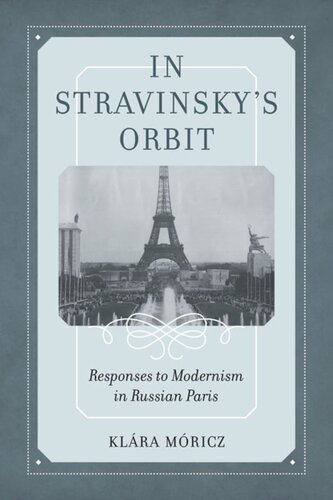

Most ebook files are in PDF format, so you can easily read them using various software such as Foxit Reader or directly on the Google Chrome browser.
Some ebook files are released by publishers in other formats such as .awz, .mobi, .epub, .fb2, etc. You may need to install specific software to read these formats on mobile/PC, such as Calibre.
Please read the tutorial at this link: https://ebookbell.com/faq
We offer FREE conversion to the popular formats you request; however, this may take some time. Therefore, right after payment, please email us, and we will try to provide the service as quickly as possible.
For some exceptional file formats or broken links (if any), please refrain from opening any disputes. Instead, email us first, and we will try to assist within a maximum of 6 hours.
EbookBell Team

5.0
48 reviewsThe Bolsheviks’ 1917 political coup caused a seismic disruption in Russian culture. Carried by the first wave of emigrants, Russian culture migrated West, transforming itself as it interacted with the new cultural environment and clashed with exported Soviet trends. In this book, Klára Móricz explores the transnational emigrant space of Russian composers Igor Stravinsky, Vladimir Dukelsky, Sergey Prokofiev, Nicolas Nabokov, and Arthur Lourié in interwar Paris.
Their music reflected the conflict between a modernist narrative demanding innovation and a narrative of exile wedded to the preservation of prerevolutionary Russian culture. The emigrants’ and the Bolsheviks’ contrasting visions of Russia and its past collided frequently in the French capital, where the Soviets displayed their political and artistic products. Russian composers in Paris also had to reckon with Stravinsky’s disproportionate influence: if they succumbed to fashions dictated by their famous compatriot, they risked becoming epigones; if they kept to their old ways, they quickly became irrelevant. Although Stravinsky’s neoclassicism provided a seemingly neutral middle ground between innovation and nostalgia, it was also marked by the exilic experience. Móricz offers this unexplored context for Stravinsky’s neoclassicism, shedding new light on this infinitely elusive term.